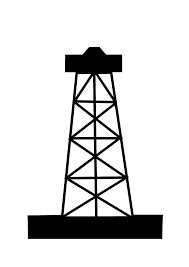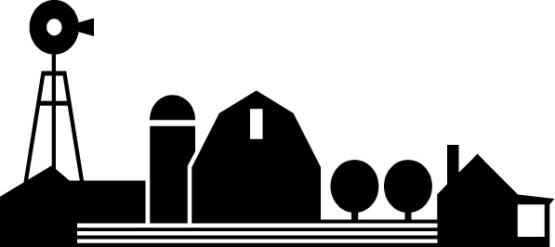Press Release:
Frack Free Illinois
April 28, 2014
More than 30,000 public comments were received
Through Freedom of Information Act requests, Frack Free Illinois found that 4 contractual payments were made to individuals and companies in the rule-drafting process
Industry-Related Contracts Influenced Hydraulic Fracturing Act Administrative Rules
For Information
JoAnn Conrad, Springfield Field Organizer, 217 652-6197, cradcomm@comcast.net
Dr. Lora Chamberlain, Chicago Field Organizer, 773-486-7660, drlora2@yahoo.com
Frack Free Illinois Coalition is a grassroots organization working for a legislative solution to the dangers and threats from fracking Illinois. Frack Free believes that renewable energy, not fracking, is the answer for Illinois workers.
The Illinois Department of Natural Resources published proposed administrative rules for the Hydraulic Fracturing Regulatory Act in the Illinois Register on November 15, 2013. The “First Notice” period allowed for public review and comment on the proposal through January 3, 2014. Public hearings were scheduled on November 26th in Chicago, December 3rd at Rend Lake College, December 5th in Effingham, December 17th in Decatur, and December 19th at Southern Illinois University in Carbondale. After the commenting period closed, the agency said it would review comments — more than 30,000 were received — and make any adjustments to the draft rules before submitting them to the Joint Committee on Administrative Rules, a legislative committee which acts on rule changes.
Since more than 30,000 public comments were received and the hearings on the rules were well-attended, it is evident that environment groups and concerned citizens believe the rules are woefully inadequate. Frack Free Illinois agrees with this assessment. This led members of the organization to speculate on how the rules were drafted and what information was obtained by the Illinois Department of Natural Resources to assist in drafting the rules.
Through Freedom of Information Act requests, Frack Free Illinois found that 4 contractual payments were made to individuals and companies in the rule-drafting process. In November, 2013, the Illinois Department of Natural Resources paid $24,475 to the Berkeley Research Group, LLC, 181 West Madison Street, Suite 2950, Chicago, for “Professional Services: Hydraulic Fracturing Administrative Rules Consulting for IDNR- Oil and Gas Division”. The Berkeley Research Group has prepared oil and natural gas industry-related presentations, forums, and articles such as an article in the Oil and Gas Monitor, May 10, 2013, by Berkeley Research Group Director, Leonard Waverman (Canadian oil sands projects, shale oil, and price discounts due to pipeline constraints), and an article in LNG Journal, June 2013, by Berkeley Research Group Director, Christopher Goncalves (changes in the LNG industry and the uncertainties, risks and opportunities they may provide).
Also paid in November, 2013, by IDNR to “review” draft rules and regulations related to the Hydraulic Fracturing Regulatory Act, were Jeanne VanBriesen, Elizabeth Casman and Deborah Stine, “Energy Experts” at the Wilton E. Scott Institute for Energy Innovation at Carnegie Mellon University in Pittsburgh, Pennsylvania. The Scott Institute was founded by Sherman Scott, son of Wilton Scott, a geologist who, according to the Scott Institute web site, made his life's work in the oil and gas industry. Son Sherman founded Delmar Systems, which specializes in providing mooring services for floating offshore rigs and encompasses operations from the Gulf of Mexico to around the world. The web site states the institute is a university-wide research initiative focused on improving energy efficiency and developing new, clean, affordable and sustainable energy sources. Interestingly, however, there is an affiliate program open to corporate partners for $50,000, to be paid over a two-year period. As members of the Energy Affiliates Program, industry leaders have the opportunity to take an active advisory role in the formation of the research institute and development of the institute’s research agenda. “Energy Partners”, according to the web site, include Duke Energy, ExxonMobil, and Texaco. VanBriesen was paid $2,000, Casman was paid $4,000 and Stine was paid $5,000. Total contractual payments from the IDNR to the 4 outside companies and individuals totals $35,475.
Additional Freedom of Information Act requests found that the state agencies with statutory duties related to the provisions of the Hydraulic Fracturing Regulatory Act and any rules to enforce and administer that act, prepared no reports or studies for the Illinois Department of Natural Resources for the rule-drafting process. These agencies include the Illinois Department of Public Health, the Illinois Emergency Management Agency, the Illinois Environment Protection Agency and the Illinois State Geological Survey. Conclusion - the Illinois Department of Natural Resources appears to have avoided consulting with the very agencies that are charged with environment protection, public health concerns, emergency management and geological data in our state.
Also, from contact with other environment groups and the scientific community in Illinois, there is no evidence that the Illinois Department of Natural Resources sought information from independent scientists or environment experts, other than those affiliated with the Scott Institute. When the draft rules were published, IDNR stated very clearly that no “Published studies or reports, and sources of underlying data” were used in the rulemaking.
Since the Illinois Department of Natural Resources has not yet responded to received comments and has not submitted any revisions to the proposed administrative rules, Frack Free Illinois wants to offer its services for review of the redrafted rules, free of charge, during a public process. Illinois citizens should not spend one more taxpayer dollar on industry-related groups to review the rules for high volume hydraulic fracking. These findings of IDNR funds being paid to industry-related organizations holds the taint of a significantly unethical or possibly corrupting influence over the IDNR, the regulatory agency charged with policing fracturing operations and keeping Illinois residents safe.
Going forward, we strongly suggest instead, that the IDNR spend tax dollars on independent scientific evaluations of the many dangers evident from fracturing operations around the country. If the IDNR desires oil and natural gas industry input on the re-drafted rules for high volume hydro fracturing, then we highly suggest that they schedule more public hearings so that all concerned citizens and representatives from the oil and natural gas industry can testify in public, free of charge, and then the public can comment on that testimony.
Taxpayer dollars appear to have been spent getting industry-related reviews of the draft rules for high volume hydro fracturing and we highly recommend that this stop. A further public process is the way froward for the IDNR, to ensure that public funds are not being utilized to facilitate the profits of an industry that clearly does not need our public dollars to assist it in their private enterprise.
# # #
Chicago Greens
Next Monthly Meeting on Sunday, May 18tth, from 2-4:00 PM, 1325 S. Wabash, Room 105


